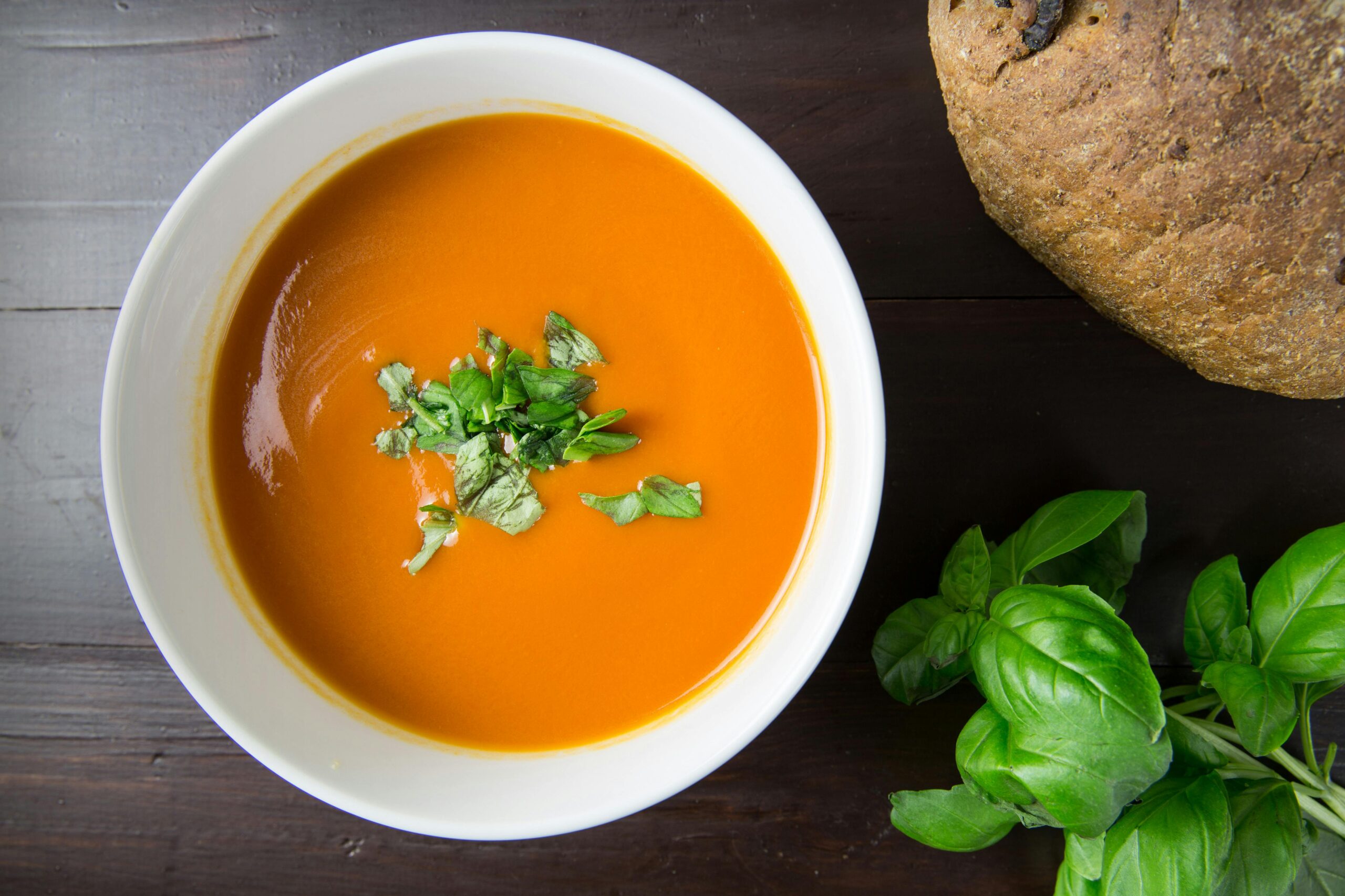It doesn’t matter if it’s dust, pollen or food allergies – the stronger your immune system is, the more your symptoms will decrease. Your immune system is your body’s natural defense against harmful invaders like bacteria, viruses and other pathogens.
While many factors influence immune health, proper nutrition is one of the most powerful ways to strengthen and support your body’s ability to fight illness, including allergies. By eating the right nutrients, you can enhance the function of your immune system and improve your overall health.
Below are a few key nutrients and foods that can help you boost your immune health:
Vitamin C
Vitamin C is one of the most well-known immune-boosting nutrients. It helps stimulate the production and function of white blood cells, which are responsible for fighting off infections. It also acts as an antioxidant by protecting your cells from free radical damage.
Foods Rich in Vitamin C:
- Citrus fruits like oranges, lemons and grapefruits
- Strawberries
- Red and yellow bell peppers
- Broccoli
- Kiwi and apricots
- Brussels sprouts
Vitamin D
If you can be passionate about one nutrient, Vitamin D would be it for me! Vitamin D does SO many things in the body, but one vital role it plays is in regulating our immune system. Vitamin D activates immune cells, like T-cells and macrophages, to help defend the body against pathogens. Vitamin D deficiency has been linked to increased susceptibility to infections.
Foods Rich in Vitamin D:
- Fatty fish like salmon, mackerel and sardines
- Egg yolks
- Mushrooms (especially those exposed to sunlight)
NOTE: It can be quite difficult to get enough vitamin D from food alone, so it’s crucial to get daily sunlight exposure or consider a supplement, especially in winter months.
Zinc
Zinc is important for the development and function of immune cells, including neutrophils and macrophages, which help combat infection. Zinc also helps regulate body inflammation, which is key when our immune system mounts an attack.
Foods Rich in Zinc:
- Shellfish like oysters and crab
- Grass-fed meat such as beef and chicken
- Beans and legumes (soaked properly before cooking)
- Raw nuts and seeds (especially pumpkin seeds)
- Eggs
Probiotics
Did you know that a large portion of your immune system resides in your gut? Your gastrointestinal tract is where beneficial bacteria regulate immune responses. Probiotics can help balance a healthy gut microbiome and help your body fight infections.
Foods Rich in Probiotics:
- Yogurt with live cultures
- Kefir
- Sauerkraut
- Kimchi
- Miso
- Tempeh
Beta-Carotene/Vitamin A
Beta-carotene is a type of antioxidant that the body converts into vitamin A. Vitamin A plays a vital role in maintaining the health of the skin and mucosal cells, which are the body’s first line of defense against pathogens.
Foods Rich in Beta-Carotene:
- Carrots
- Sweet potatoes
- Butternut squash
- Kale and spinach
- Mangoes
- Red peppers
Omega-3 Fatty Acids
Omega-3 fatty acids, found in fatty fish and a few plant sources, have anti-inflammatory properties that can help balance the immune system. As chronic inflammation can impair immune function, consuming omega-3-rich foods may help reduce inflammation.
Foods Rich in Omega-3 Fatty Acids:
- Fatty fish like salmon, mackerel and sardines
- Flaxseeds and chia seeds
- Walnuts
- Hemp seeds
- Algal oil
Garlic
Garlic is a wonderful addition that has been used for centuries for its medicinal properties, including its ability to benefit our immune system. It contains compounds like allicin, which stimulates immune cell activity to help the body fight off infections.
Ways to Include Garlic in Your Diet:
- Add raw or cooked garlic to soups, stews and sauces
- Use minced garlic in salad dressings or marinades
- Top vegetables with roasted garlic
Antioxidants
Antioxidants play a key role in protecting the body’s immune cells from damage caused by free radicals. Free radicals are unstable molecules that can harm cells and contribute to the development of chronic diseases.
Foods High in Antioxidants:
- Berries (blueberries, strawberries and raspberries)
- Dark chocolate (70% cocoa or higher)
- Nuts like almonds, walnuts, and pecans
- Green leafy vegetables
- Green tea
A well-balanced, nutrient-rich diet is essential for keeping your immune system strong and resilient. By consuming a variety of foods listed above, you’ll ingest the vitamins, minerals and antioxidants your body needs to fight infections and reduce its risk of illness.
If you are struggling with allergies and/or other infections and would like help assessing your nutritional health, schedule a free consultation. We’ll create a plan and accountability to help you improve your immune system.
Resource Links:
Wilson RB, Liang Y, Kaushal D, Carr A. Molecular Pharmacology of Vitamin C and Relevance to Health and Obesity-A Narrative Review. Int J Mol Sci. 2024;25(14):7523. Published 2024 Jul 9. doi:10.3390/ijms25147523
Sîrbe C, Rednic S, Grama A, Pop TL. An Update on the Effects of Vitamin D on the Immune System and Autoimmune Diseases. Int J Mol Sci. 2022;23(17):9784. Published 2022 Aug 29. doi:10.3390/ijms23179784
Chandra RK. Nutrition and the immune system: an introduction. Am J Clin Nutr. 1997;66(2):460S-463S. doi:10.1093/ajcn/66.2.460S
Caesar R. The impact of novel probiotics isolated from the human gut on the gut microbiota and health. Diabetes Obes Metab. 2024; 1-12. doi:10.1111/dom.16129
Amimo JO, Michael H, Chepngeno J, Raev SA, Saif LJ, Vlasova AN. Immune Impairment Associated with Vitamin A Deficiency: Insights from Clinical Studies and Animal Model Research. Nutrients. 2022;14(23):5038. Published 2022 Nov 26. doi:10.3390/nu14235038
Fu Y, Wang Y, Gao H, et al. Associations among Dietary Omega-3 Polyunsaturated Fatty Acids, the Gut Microbiota, and Intestinal Immunity. Mediators Inflamm. 2021;2021:8879227. Published 2021 Jan 2. doi:10.1155/2021/8879227
Charron CS, Dawson HD, Albaugh GP, et al. A Single Meal Containing Raw, Crushed Garlic Influences Expression of Immunity- and Cancer-Related Genes in Whole Blood of Humans. J Nutr. 2015;145(11):2448-2455. doi:10.3945/jn.115.215392
Bendich A. Physiological role of antioxidants in the immune system. J Dairy Sci. 1993;76(9):2789-2794. doi:10.3168/jds.S0022-0302(93)77617-1




